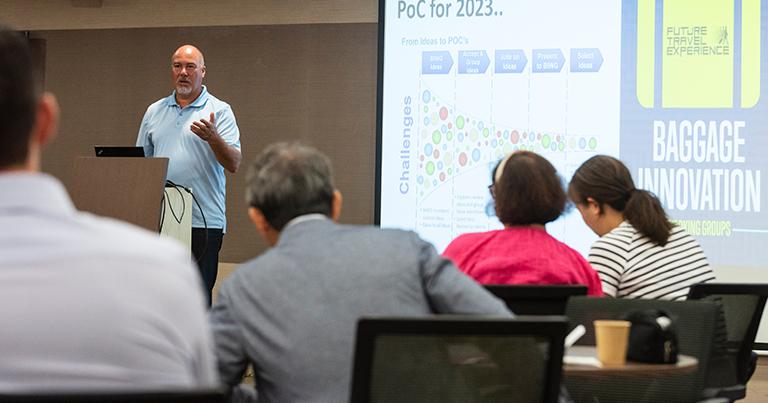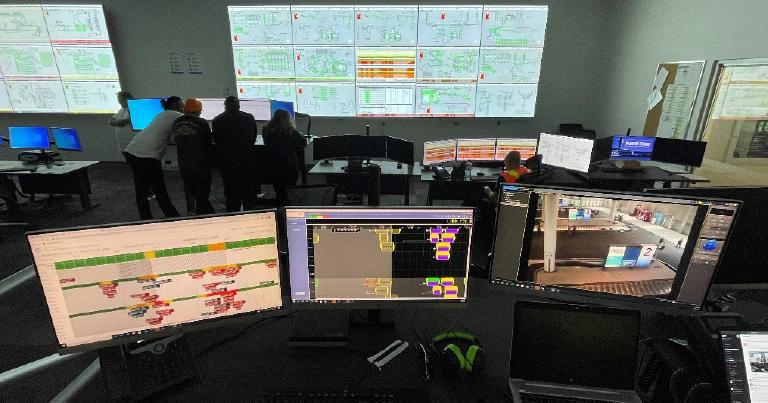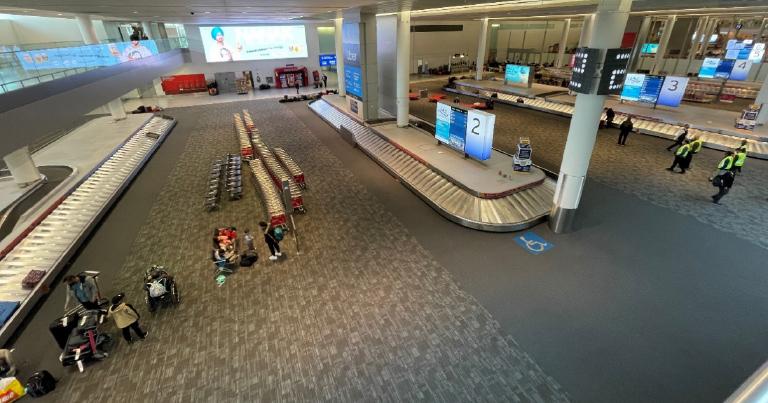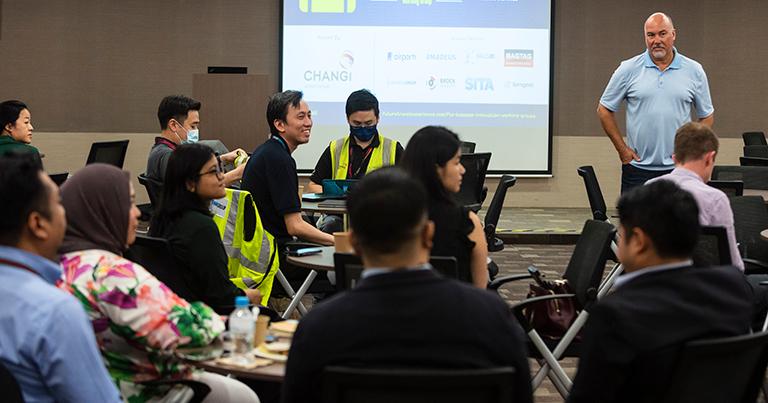
The FTE Baggage Innovation Working Group (BIWG) is the industry forum where the future of baggage handling will be defined. Its fast-growing member list brings together the most innovative and progressive baggage supply chain companies, airlines, and airports, providing a unique platform for cooperation and industry advancement.
A key element of FTE BIWG activities is collaboration on game-changing Proof of Concepts (PoCs) to reduce costs, improve passenger experience, and test innovations. Its most recent success follows the PoC around baggage reclaim optimisation completed at Toronto Pearson International Airport. Together with Copenhagen Optimization, a partner of the BIWG, the airport identified four key challenges with baggage reclaim that the PoC aimed to address: capacity, efficiency, customer experience, and operational savings.
During the PoC Toronto Pearson utilised Copenhagen Optimization’s specialised module for planning and operating the baggage reclaim operation – Better Baggage. “Through live flight feeds and forecasted volume of bags, the solution continuously optimises the allocation to create the best distribution of bags and passengers across the baggage hall, bringing data utilisation and the passenger experience to the forefront,” explains Sam McCrimmon, Director, North America, Copenhagen Optimization. “The module is a part of Copenhagen Optimization’s cloud-based Better Airport solution, that enables airports to forecast, plan, and execute operations. The solution aims to bring all stakeholders across the airport on to the same platform, delivering optimisation and supporting the airport in making the right decisions at the right time.”
The PoC demonstrated that automated and optimised belt allocation can enhance efficiency, capacity and passenger experience, while also giving more flexibility for maintenance times. As a result, the Better Baggage solution will move to full operational implementation at Toronto Pearson. Integration is expected to take four months and will commence in January, meaning it will be operational before the peak summer travel period in 2023.
“The key factor was that it was very successful and checked all of the desired outcomes of the PoC as envisioned, the most important being the ability to take multiple inputs and develop the best plan for both planning and real-time allocation,” says Darin Juby, Director Baggage Services, Greater Toronto Airports Authority and Head of Baggage Transformation, Future Travel Experience. “The Operations Team that performed the PoC clearly saw the benefit during the experience and had their input built into the solution, which is critical for future success. Copenhagen Optimization has a unique ability to provide solutions that are easily accepted and provide true benefits to both leadership and operational team members.”
Better Baggage: Optimising baggage claim facilities for airport, airlines and passengers

Working closely to deliver the successful PoC for Better Baggage was a win-win, delivering proof of significant operational benefits for Toronto Pearson while enabling Copenhagen Optimization to test new capabilities in the live environment. “We are excited to move into operational implementation, which will bring long-term benefits,” says McCrimmon.
Better Baggage uses historic performance to formulate a pre-plan and then once real-time information is available it suggests allocations that truly optimise baggage claim facilities for the airport/airlines and most importantly the customer experience. “This solution can process large amounts of data quickly to provide the best option for allocating our inbound claim carousels in real time,” Juby explains. “In addition, it will highlight opportunities to allow maintenance access during less expensive timeframes and evenly distribute the load on our facilities, thereby creating cost savings for the airport.”
McCrimmon elaborates that optimisation of the arrival belt allocation process will see benefits realised in three key areas:
- “Automated allocation based on true baggage volumes results in fewer hours spent on manual planning and better overall belt utilisation, resulting in decreased operational costs for Toronto Pearson. This means increased capacity, greater flexibility, and improved response to irregular operations.”
- “Decreased long-term investment costs are also realised by increasing the baggage belt lifetime, as previously routine significant overloads of single belts are avoided through balanced use of assets. Regular essential maintenance can easily be scheduled without significant disruption or capacity loss, preventing significant downtime.”
- “The passengers picking up their bags will have a better airport experience. Balancing flights across belts during peak periods prevents crowding in the baggage hall by ensuring many busy flights or delayed flights are not sent to the same belt at the same time, and constant optimisation ensures that unplanned changes are easily accounted for.”
FTE BIWG: “A unique group to enable cross-company innovation, understanding, and benefits”
This was the first PoC to take place during Juby’s tenure as Head of the FTE BIWG, and there were upwards of a dozen people working on it. Participation included airport, airline and suppliers, which is the identical make-up of the BIWG. “This unique combination is the key to the success of the group, as it is imperative that we all work together in unison to deliver solutions that transform the way bags are moved with their people,” says Juby. “PoCs are also a lot of fun to work together on and many have developed both professional and personal relationships within this group of people that love baggage.”

Lene Thorsen Gobel, Senior Consultant, Copenhagen Optimization, was part of the PoC team and leads the company’s participation in the BIWG. She explains that such successful PoCs are strong evidence of the potential for creating partnerships within the BIWG. “Not only do the parties involved in the PoC benefit from learnings, innovation, and development, but through the BIWG all of this is shared to a wider audience who get the possibility to utilise or build on to the outcomes of the PoC. The BIWG is truly a unique group to enable cross-company innovation, understanding, and benefits.”
The most recent BIWG in-person meeting took place on 8 November in Singapore during FTE APEX Asia Expo. It was very successful in providing a venue for many people from the Asia-Pacific region to attend in-person and share their experiences and knowledge. “The tour provided by our hosts, Changi Airport, was excellent and our members truly enjoyed the insights shared – feedback was amazing,” Juby comments. “The in-person BIWG meeting discussion centred around the industry’s recovery from the global pandemic and how baggage tracking has changed and evolved. The industry must work together to meet the needs of passengers in this regard and there are numerous ways that we can accomplish this if we work collaboratively.”
Building on that collaborative approach, further PoCs are planned. Juby explains that in 2023 the BIWG will modify its PoC selection process to take input from all members of the group on specific themes that can shape the future of baggage. “The ideas will be voted on and then various members will champion and/or participate in those PoCs, demonstrations or research ideas in various regions around the world and share learnings with the group. Opportunities abound as the group continues to grow with more airlines, airports and partners joining every week!”
Contact us to learn more about membership pricing and benefits >>







